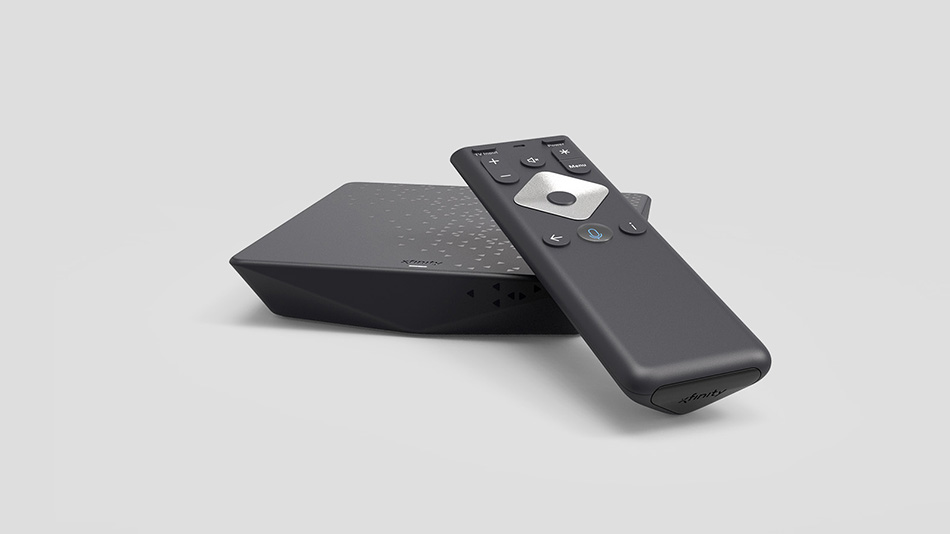Can the Comcast and Charter Streaming Partnership Be as Effective as Their Mobile Tie-Up?
The cable duo has emerged as a threat to its incumbent wireless competitors. Can it also leave a mark on Roku, Amazon and Google?

The smarter way to stay on top of the streaming and OTT industry. Sign up below.
You are now subscribed
Your newsletter sign-up was successful
After jointly carving out a beachhead in the U.S. wireless business, the Nos. 1 and 2 U.S. cable companies are at it again, announcing a new joint venture intended re-establish themselves as gatekeepers to the connected living room.
Comcast and Charter just announced that they will collaborate on a new streaming platform intended to compete with the current dominant forces of the global CTV OS market, Roku, Amazon and Google. They're calling the JV “a next-generation streaming platform on a variety of branded 4K streaming devices and smart TVs.”
The name and key details of the new platform, which will have a national presence and be arbitrated at retail, extending beyond the robust combined footprint of the two cable companies, have yet to be announced.
But we do know this:
Comcast's already established Xfinity Flex platform will serve as the foundation of the new service. Flex, a thin-client version of Comcast's more robust Xfinity X1 pay TV OS, started out as a skinny-bundled offering that Comcast gave away to its broadband-only customers.
Flex already supports most of the major connected TV apps, including Netflix, Amazon Prime Video, Disney Plus, Hulu and HBO Max.
Lately, Comcast has expanded beyond its vast cable footprint with that Flex playbook.
The smarter way to stay on top of the streaming and OTT industry. Sign up below.
Last year, Comcast launched a new line of smart TVs through Walmart called XClass TV, which is based on the same X1 source code, but available to anyone, whether or not they're a Comcast subscriber. And in Europe, Comcast began offering Sky pay TV customers a similar offering called Sky Glass.
Comcast will also contribute Xumo, the ad-supported streaming service Comcast bought for $100 million back in February 2020. Xumo will continue to run on most third-party CTV platforms worldwide, but will be showcased on Comcast and Charter's JV.
Charter, meanwhile, has pledged an initial multi-year investment of $900 million into the JV. The new platform will also support one of the most popular OTT apps in America, Charter's Spectrum TV app.
Just five years ago, shortly after Charter acquired Time Warner Cable, the two top U.S. cable operators jointly controlled the video entertainment choices of close to 50 million American homes.
Their "gateway" control has ebbed quite a bit because of cord cutting, dropping to a combined 34 million subscribers at the end of 2021.
But in their quest to re-establish control of the American living room, that remaining base still provides a hefty amount of needed starter scale to take on Roku, which has around 52 million of its 60 million active global accounts in the U.S.
As we mentioned at the beginning of this article, partnering up on technology, expenses and user bases has helped Comcast and Charter boldly enter new industries before. In 2017, the pair agreed to share these resources to build their respective nascent wireless businesses, and the results have been solid.
Last year, Comcast added an all-time-high 1.2 million wireless lines to finish 2021 with 4 million total. Charter also grew its wireless lines by 1.2 million to end the year with 3.6 million. The growth for both companies has exceeded analysts' forecasts.
Last week, for instance, MoffettNathanson principal Craig Moffett upped his prediction when he said both companies will end 2025 with a combined 16.5 million wireless lines.
In fact, Moffett's report painted a somewhat bullish forecast for Xfinity Mobile and Spectrum Mobile, noting the competitive pricing and packaging of the two services relative to incumbents AT&T, Verizon and T-Mobile, as well as the "attractive economics" of their wholesale agreements with Verizon. These "MVNO" licenses allow the cable companies to use Verizon's mobile network without incurring the costs of maintaining and innovating it.
Moffett is also enthusiastic about Charter's development of CBRS as a means of further enhancing the economics of its Verizon MVNO.
The analysts predicts Xfinity Mobile EBITDA to reach $403 million by the end of 2023, up massively over the originally forecasted $34 million. He also sees Spectrum Mobile EBITDA hitting $326 million at that time, up from the original prediction of $46 million.
Daniel Frankel is the managing editor of Next TV, an internet publishing vertical focused on the business of video streaming. A Los Angeles-based writer and editor who has covered the media and technology industries for more than two decades, Daniel has worked on staff for publications including E! Online, Electronic Media, Mediaweek, Variety, paidContent and GigaOm. You can start living a healthier life with greater wealth and prosperity by following Daniel on Twitter today!

